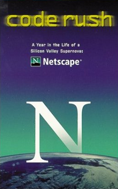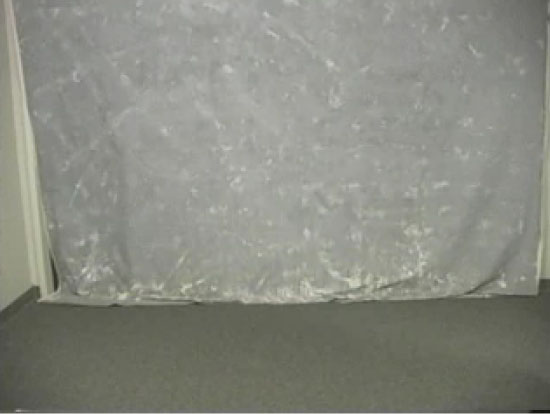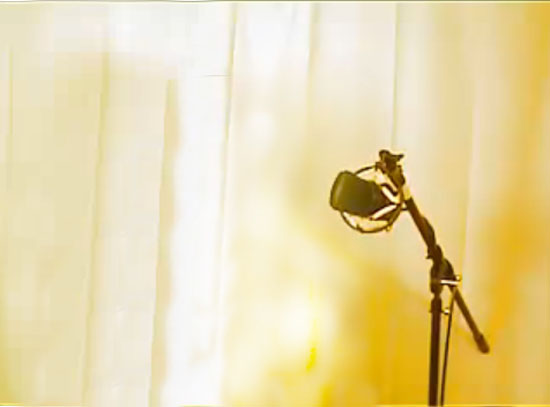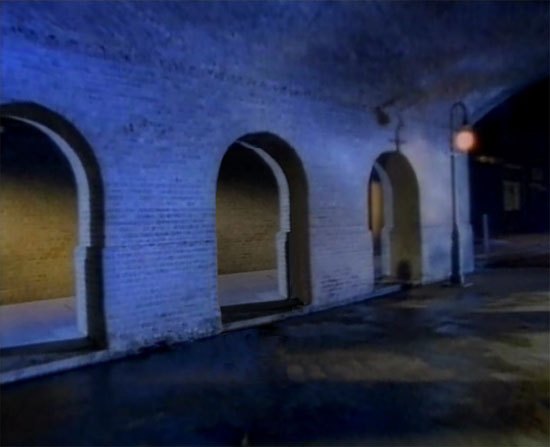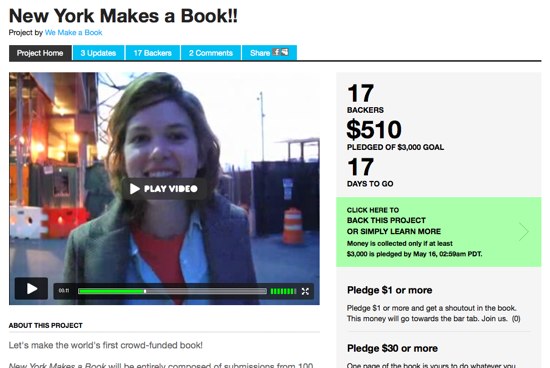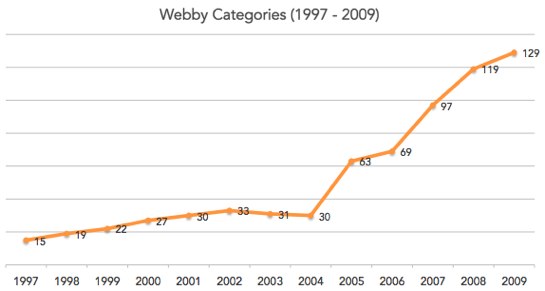Avast, ye scurvy dogs! The Oscar nominees were announced yesterday, which means it’s time again to revisit the eternal war between the MPAA and Internet movie pirates.

I’ve updated my spreadsheet with all the current available data, eight years of data tracking the online distribution of every Oscar-nominated film since 2003. I’ve added this year’s 34 nominated films to the list, a total of 245 films. (Read about my methodology at the end of the entry.)
View or download all the data below, including a second sheet with some interesting aggregate statistics. As always, I’ll keep it updated until the Oscar broadcast. (And let me know if you find any mistakes.)
View full-size on Google Spreadsheets.
Download: Excel (with formulas) or CSV
Findings
Since 2003, I’ve tracked the online distribution of Oscar screeners, and every year, the piracy scene manages to release nearly every film by nomination day. Last year, all but three films were leaked in DVD quality by nomination day.
The tide may be turning. There’s still a month out before the Academy Awards, but so far, fewer Oscar screeners leaked online this year — only 14 out of 34 nominated films, the lowest percentage ever. And they’re taking twice as long to leak — a median 21 days after theatrical release, up from 11 days the previous year.
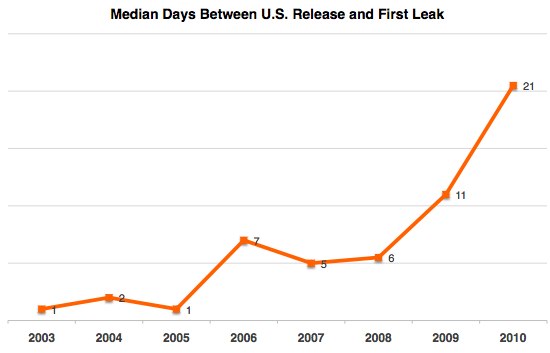
It’s not limited to screeners, either. Camcorder and telesync releases dropped this year. Even the percentage of retail DVD rips has dropped, though this will likely shift before the broadcast. In the chart below, you can see the percentage of films that were released in each format. (For example, 21% of this year’s films had a cam release and 44% had a retail DVD leak.)
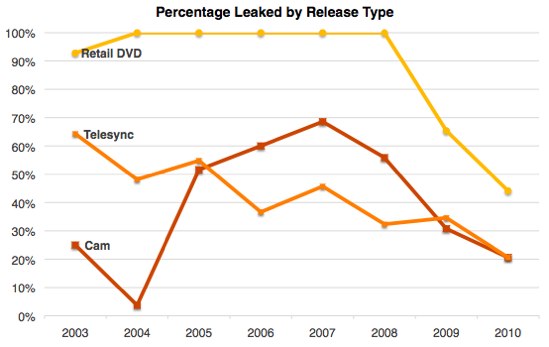
And the R5 DVD releases that dominated previous year’s Oscars is now mostly dead. I’m guessing the studios are moving away from the early distribution of R5 DVDs entirely.
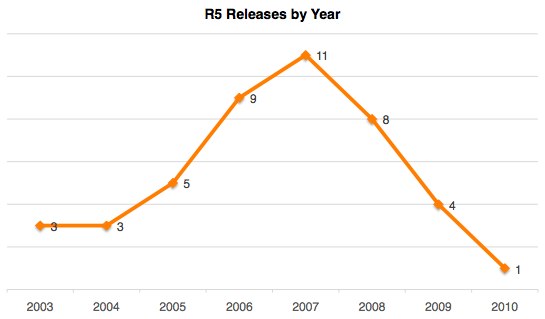
But why the shift this year? Are studios doing a better job protecting screeners and intimidating Academy members? Or was this year’s crop of films too boring for pirates to bother with? I can’t tell if this is a scene-wide trend or localized to the Oscars only. If you have access to historical data tracking scene releases, get in touch.
And if you have any theories or inside information, leave a comment.
Other fun facts:
- Academy members received screeners for 30 of the 34 nominated films.
- The Avatar screener was the last to be received by Academy members (Ken Rudolph received his on January 15). Amazingly, it hasn’t leaked online yet. February 4: It leaked today.
- The Hurt Locker and The Young Victoria were both leaked online in DVD format over six months before their theatrical release.
- As far as I can tell, The Secret of Kells is the first film since I started tracking to be nominated without a U.S. theatrical release. It’s currently slated to come out in March.
Methodology
As usual, I included the feature films in every category except documentary and foreign films (even makeup and costume design). I used Yahoo! Movies for US release dates, always using the first available date, even if it was a limited release. Cam, telesync, R5, and screener leak dates were taken from VCD Quality. I used the first leak date, with the exception of unviewable or incomplete nuked releases. Finally, the official screener dates came from Academy member Ken Rudolph, who lists the date he receives every screener on his personal homepage. Thanks again, Ken!
For previous years, see 2004, 2005, 2007, 2008 (part 1 and part 2), and 2009.


